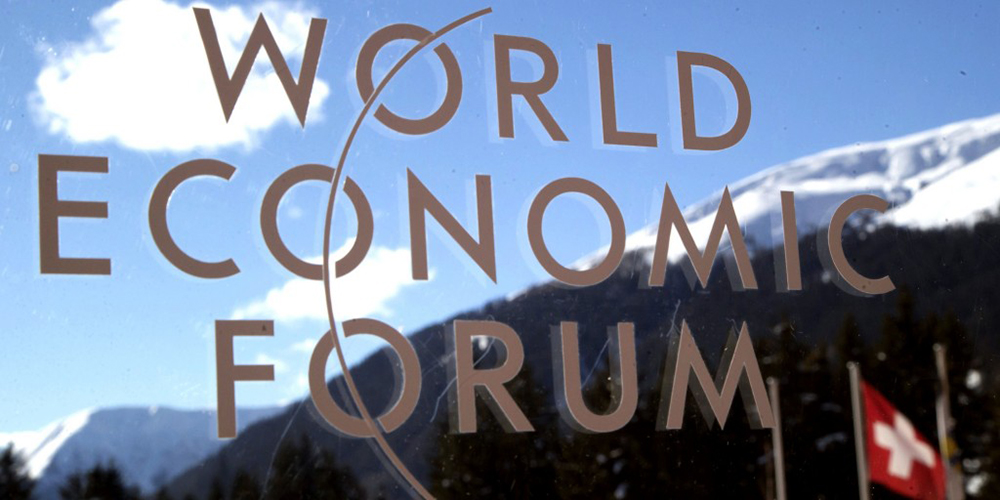This year, I had the opportunity to attend the World Economic Forum (WEF) in Davos, Switzerland, which brought together over 3,000 leaders from business, government, international organizations, civil society, academia, media and the arts. I’ve attended the gathering in the past, and can say that this meeting was my favorite experience for a few reasons.

First, the overarching sentiment of optimism among attendees was inspiring. There was a strong, positive feeling with regard to the economy, as well as the role that technology is playing – and will continue to play – in solving some of the world’s biggest problems.
That said, it was recognized that technology alone can’t drive positive change; organizations across sectors and geographies must collaborate to realize the opportunities that technology presents. We’re all aware of how emerging technology such as artificial intelligence, machine learning and robotics is beginning to disrupt industries, economies and even day-to-day human interactions, as outlined in our recently released research on Realizing 2030. It’s going to take strong leadership and corporate commitment to shape a future that works for all, and it was clear that those in attendance agreed.
This notion of collaborative partnership and collective responsibility was my second big observation, aligning with the conference theme of “Creating a Shared Future in a Fractured World.” Throughout the week, actionable, measurable commitments were made by some of the largest corporations in the world in partnership with third party public sector organizations, particularly in the areas of sustainability and the circular economy. A great example was the unveiling of the Platform for Accelerating the Circular Economy (PACE), a public-private collaboration co-chaired by the CEO of Philips, and the heads of the Global Environment Facility and UN Environment.
Dell Technologies was part of this coalition of forward-thinking leaders that pledged to accelerate the implementation of the circular economy. The principles of a circular economy, which seeks to design out inefficiencies and turn “waste” into a valuable resource, have long been employed by Dell as a key strategy to meet our Legacy of Good 2020 goals; most recently through our programs including ocean plastics and closed-loop gold. In the pledge that was announced at WEF, we committed to closing the loop on all used Dell equipment, including capital equipment that becomes available to us, by 2020.
My third observation was with regard to the amount of open, honest discussion around diversity, gender and race. It was clear that every company sees diversity as a business imperative, but many are struggling with how to foster environments of inclusion, including managing negative sentiment such as aggression, bullying and tone. There isn’t a simple, one-size fits all solution to ensuring equality in the workplace and society, especially when you apply a global lens to the challenges various groups face across geographies. To make progress, the general consensus was that companies really need to examine their cultures and address issues head-on through strong leadership commitment and example – something I’ve always believed in very strongly. One of the ways we’ve approached this at Dell Technologies is through our early and strong participation in Catalyst’s Men Advocating Real Change (MARC) initiative, which aims to create a more inclusive workplace by engaging leaders in candid conversations about the role of gender in the workplace as well as topics such as unconscious bias.
I was so glad to hear that the Dell Technologies value proposition and strategy is resonating.
Last but not least, a real highlight of WEF was my engagement with our customers who also attended the conference. Throughout our conversations, I was so glad to hear that the Dell Technologies value proposition and strategy is resonating. We had a shared excitement of all the opportunity ahead to realize the digital future and drive positive change.
While I walked away from Davos inspired and energized, there were also a few areas that have stayed with me. Areas where, as a global community, we need to invest more time, resources and expertise. One is with regard to the refugee crisis. I had the opportunity to participate in a simulated session called “A Day in the Life of a Refugee,” which was incredibly eye-opening to me personally, educating me on the magnitude of the opportunity we have for change. This crisis, which counts an unacceptable 65+ million men, women and children, represents a devastating loss of human life and potential.
The second is around equality for women in society and the workplace, which I alluded to above within the broader conversation of diversity and inclusion. While the conference sent a strong message by having an all-female co-chair team this year, the crowd was still largely male-dominated, which our customers even noticed and flagged in our discussions. This is a reflection of the need for more women in leadership positions – across the private and public sectors, as well as government.
I opened this blog discussing the amazing potential for technology to reshape economies, industries and lives. I’ll close with the notion that with great opportunity comes great responsibility. As the “Fourth Revolution” is upon us, we must anticipate what digital transformation means for labor forces of all ages and skill sets. We must be prepared to reskill the workforce for the digital economy, while at the same time encouraging the next generation to explore careers in STEAM (science, technology, engineering, arts, math). By remaining accountable and collaborative, optimistic and forward-thinking, I believe we will be able to capitalize on the tremendous opportunity that technology – and Dell Technologies – can bring to the world to advance human progress.